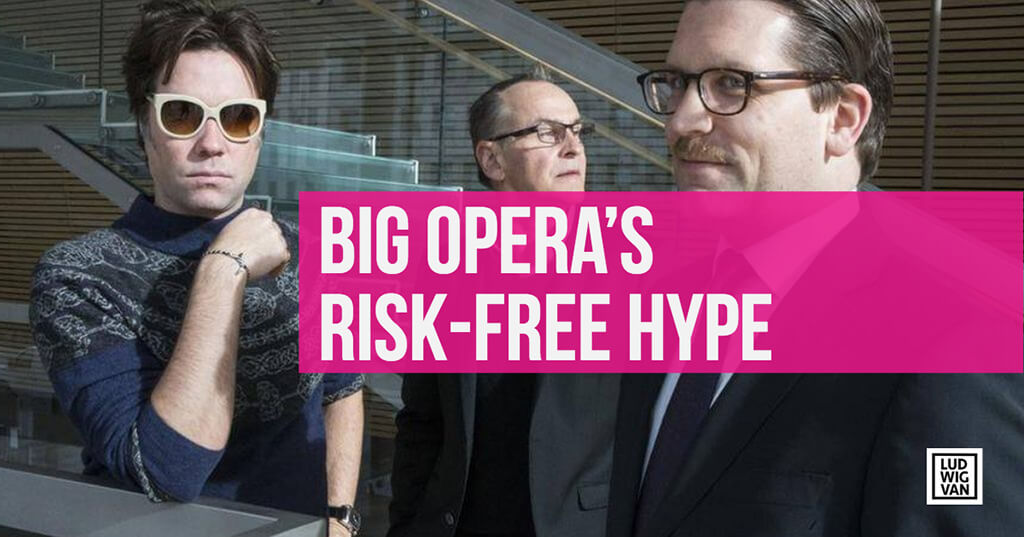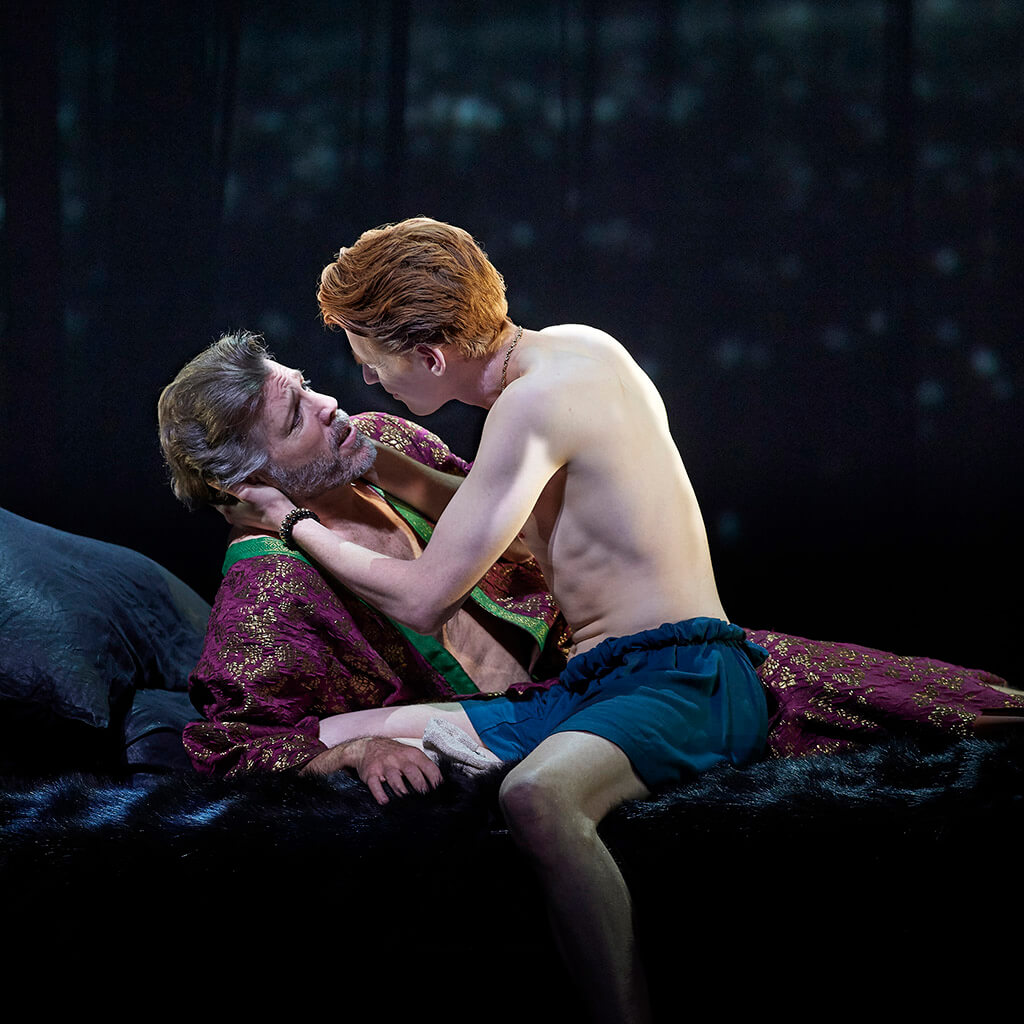
“Hadrian is fabulously expensive proof that creative leadership in Canadian opera is passing to companies like Tapestry and Against the Grain,” says Lev Bratishenko.
Rufus Wainwright’s second opera, Hadrian, arrived this Saturday with the glamour and public resentment of a celebrity baby. Did it have to?
As the first COC commission to get a mainstage premiere since 1999, Hadrian had the impossible task of justifying all the other operas that did not get made and all the composers who did not get a chance—or a second chance, after Wainwright’s disappointing Prima Donna, which also entered the world on a silver platter and not, like most new operas, on a shoestring.
Imagine instead if Hadrian was part of a dozen annual premieres across Canada: one-act operas written by emerging composers, others by veterans with a dozen attempts under their belts, a few by international artists invited here to get weird, and maybe one written by computer mashing together dictionaries with the howling of jealous European composers. Much less pressure to be an epic.
The problem is bigger than any one company, but despite being the wealthiest in Canada, COC seems reluctant to lead. Over the phone, Artistic Director Alexander Neef praises the recent surge of operatic variety in Toronto, which “exposes people to things we couldn’t provide them with… While we have assets others don’t have, which invites a certain scope and scale of commissions for the big stage.” This is the complaint of every big house afraid of unsold seats, and there are many tested strategies for how to manage the risk, from festivals to second stages and endless collaborations, some of which, like their work at Banff with Against the Grain, COC already participates in.
They could announce a decade of annual commissions with a clear theme, like Fort Worth did when they launched their Opera of the Americas cycle in 2013 and whose annual “Frontiers” recital presents six twenty-minute excerpts of new works (now in its seventh season.) Or lead a charge for new funding like an improved Canadian Opera Commissioning Fund (ended by the Canada Council in 2011). That the current ecosystem is unbalanced makes it a worse place to live for everyone.
Neef explained that Hadrian should be seen in the context of four other operas, Pyramus and Thisbe, Louis Riel, and two new works by Canadian composers that will be announced for premieres by 2023. He wants more work by Canadian composers but also “more work that picks up uniquely Canadian themes.” Great, but why go it alone? And what stories won’t make it because they’re not “big” enough?
It’s obvious that the COC lavished money, attention, and hard work on Hadrian, but the need to justify it as the right opera for today has them spinning it hard. The relationship the opera proudly (and tenderly and beautifully) puts centre stage is the old-fashioned kind, with an old, wealthy and powerful man falling for a boy finishing puberty. Hadrian sings “I can almost feel a beard.” Historically accurate? Yes, but the idea of homosexual love to celebrate in 2018?

The “explicit” sex pruriently enjoyed in nearly every article about the opera is also risk-free hype. The dancers wear g-strings, and Antinous makes sure he and Hadrian stay under the covers for their sex scene. We don’t need to see penises to celebrate gay male love any more than we need to see vaginas to celebrate the straight kind, but after all the public pride, why this failure of nerve?
Hadrian isn’t activism and it doesn’t need to be. Three people had lunch and the package came together: a suitably grand “operatic” subject — one of my favourite operas is about a nose, and there’s one about Rob Ford’s hatred of bicycles — plus politics that are still exciting without causing real problems, plus old-fashioned titillation. It is always a bit like this. Risk management is only fair considering the financial peril of the archaic mega-commission model.
None of this has to be a problem. The COC should hire whoever they want to write whatever they want, especially if it expands who gets to try writing opera (maybe women of colour as well as millionaire pop stars?) But as long as they have an outsize presence on the national stage, their tendency to let the small companies take bigger risks will look cowardly.
And it’s the COC who stands to suffer the most from it. Resentment makes it harder to celebrate Hadrian, because the opera isn’t even bad. It could lose the entire first act, but the second and third are solid, with long passages of well-paced emotion and even a few beautiful arias. The production is brilliantly sung, with Ambur Braid rightly receiving show-stealing praise. There is enough, just not enough to be our opera of the year; not enough to speak to the state of the art in even one city.
Hadrian is fabulously expensive proof that creative leadership in Canadian opera is passing to companies like Tapestry and Against the Grain. As long as they manage to premiere many new works for a fraction of the money the COC raises and receives, who actually takes the bigger risk?
- REPORT | Ukrainian Pianist Crowned Winner Of 2022 Honens Competition - October 29, 2022
- REPORT | The 10th Honens International Piano Competition: Finals I - October 28, 2022
- REPORT | The 10th Honens International Piano Competition: Semifinals IX-X - October 25, 2022



